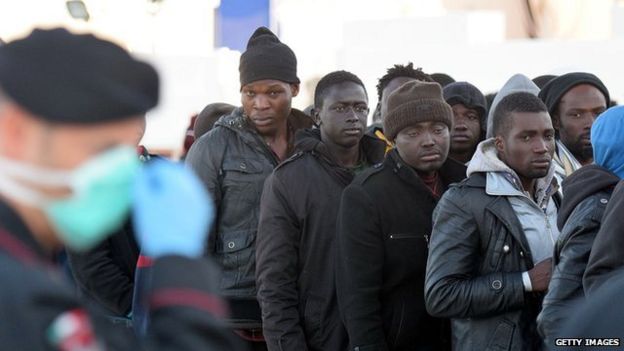The Federal Government has received 103 Nigerians deported from Turkey over migration-related issues, such as expired visas and irregular migration.
This was disclosed by the Federal Commissioner of the National Commission for Refugees, Migrants, and Internally Displaced Persons (NCFRMI), Alhaji Tijani Ahmed, during the deportees’ profiling in Abuja on Friday evening.
Represented by Amb. Catherine Udida, the Director of Migration Affairs, Ahmed noted that while 110 deportees were expected, only 103 arrived, all of whom were male, News Agency of Nigeria first reported.
“Some of them have been in the deportation camp for some months, and now that they are here, we are hoping to follow up on all the allegations gathered in their profiling.
“We will go through the profiling forms because some of them have said that their passports were seized.
“We are going to follow up with the Turkish authority, because the passports are still the property of the Federal Republic of Nigeria,”
According to Ahmed the NCFRMI is mandated to support all returnees, regardless of their status, including through training programs aimed at reintegration into society.
Similarly, Bashir Garga, North-Central Zonal Coordinator of the National Emergency Management Agency (NEMA), pledged government support for the returnees through collaboration with relevant agencies.
One deportee, Mr. Arinze Stone, reported being detained in a Turkish camp for six months. Stone, who had been living in Turkey for several years conducting business, claimed that the Turkish authorities began arresting individuals with expired or pending documentation after the European Union started paying Turkey for managing illegal immigrants.
“Each day, the European Union pays 120 Euros per head of immigrants in the Immigration Camp.
“Ever since I had been in Turkey, I always had my resident permit renewed. It just got expired and the Turkish authority collected 700 Euros from me for tax and insurance and then cancelled the renewal,” he said.
Stone added that the deportation fee of approximately 2,500 euros, which was supposed to be provided to each deportee, was not paid.
Another deportee, Moses Emeh, who had operated a registered company in Turkey for over eight years, stated that his resident permit was forcibly cancelled as he was planning to convert it into a work permit. He expressed hope that the Nigerian foreign affairs ministry would address these diplomatic issues and called for sensitization programs for Nigerians in Turkey, citing a lack of transparency from Turkish authorities.
“I don’t know where to start from. But I believe this is a diplomatic issue and I trust our foreign affairs minister, to follow it up.
“I also think that they should have a sensitisation programme for Nigerians still living over there in Turkey because the Turkish government is not being sincere and transparent with us,” Emeh stated.
This is not the first time concerns have been raised over Turkey’s treatment towards Nigerian citizens.
TheWitness reported that the Nigerian Civil Aviation Authority (NCAA) was preparing to impose regulatory sanctions on Turkish Airlines due to the alleged mistreatment of Nigerian passengers.
Michael Achimugu, Director of Public Affairs and Consumer Protection at NCAA, stated that President Bola Tinubu has directed the NCAA, Federal Airports Authority of Nigeria (FAAN), and other relevant agencies to ensure the protection of Nigerian passengers’ rights.
Approximately 300 passengers, many Nigerians from Italy, were stranded at Murtala Muhammed International Airport (MMIA) in Lagos due to Turkish Airlines being picketed by the Nigerian Labour Congress (NLC).
These passengers, primarily from Edo State, relied on Turkish Airlines due to the lack of direct flights from Italy to Nigeria, and their flights were cancelled without timely notification.
In a related context, the number of African students in Turkey rose to over 60,000 in 2022, with Nigerian students on scholarships comprising the majority.
This represents a significant increase from about 40,000 African students previously enrolled, driven by scholarship opportunities provided by the Turkish government.
The student population is expected to continue growing as Turkey and Africa strengthen ties.







